Assassin’s Creed Valhalla is one of the action RPGs by Ubisoft that features stunning gameplay with better visuals. It comes under the Assassin’s Creed lineup that’s already very much popular among the gaming community. However, some PC gamers are looking for the Assassin’s Creed Valhalla Best Graphics Settings for Nvidia 3070, 3080, 3090, 1060, 1070, 2060, 2080, and More.
If you’re one of the Assassin’s Creed Valhalla players on the PC version and facing issues with the game running due to low performance, follow this guide completely. Here we’ve mentioned a couple of possible workarounds for you that should come in handy. Additionally, we’ve mentioned the best possible in-game graphics settings for the Assassin’s Creed Valhalla PC version so that you can get the best-ever gaming experience.
It looks like achieving at least 60 FPS with 1080p resolution can run the game smoothly without any second thoughts on an entry-level graphics card or PC configuration. At the same time, high-end graphics card users can eventually get 100+ FPS with higher graphics settings. Additionally, some other aspects can apply to you, such as incompatibility with the specification, outdated graphics driver, outdated game, corrupted or missing game files, etc.

Page Contents
- Assassin’s Creed Valhalla Best Graphics Settings for 3070, 3080, 3090, 1060, 1070, 2060, 2080, and More
- 1. Check System Requirements
- 2. Get a Minimum of 60 FPS with Optimal Graphics Settings
- 3. Disable Mouse Acceleration on Windows
- 4. Adjustments for Nvidia Control Panel
- 5. Update Graphics Drivers
- 6. Switch to Dedicated GPU
- 7. Check for Game Updates
- 8. Verify and Repair Game Files
- 9. Close Background Running Tasks
- 10. Set High Priority in Task Manager
- 11. Disable Windows Firewall or Antivirus Program
- 12. Set High Performance in Power Options
- 13. Try Disabling Overlay Apps
Assassin’s Creed Valhalla Best Graphics Settings for 3070, 3080, 3090, 1060, 1070, 2060, 2080, and More
Intel CPU users require an external graphics card and Nvidia graphics cards are top in performance overall. Still, suppose you’re an entry-level Nvidia GT or GTX lineup graphics card on your PC and not getting satisfactory gameplay sessions with at least the 60 FPS mark on 1080p resolution. In that case, you should start tweaking the in-game graphics settings as per the performance. We’ve mentioned the best graphics settings for Assassin’s Creed Valhalla PC that you can check below.
1. Check System Requirements
Before jumping into any other workarounds or settings adjustments, you should ensure that your PC specification is compatible enough or not. We’ve mentioned the system requirements below that you can check out.
Minimum System Requirements:
- CPU: AMD Ryzen 3 1200 3.1Ghz / Intel i5-4460 3.2Ghz
- GPU: AMD R9 380 4GB / Nvidia GeForce GTX 960 4GB
- RAM: 8GB (Dual-channel mode)
- Resolution: 1080P
- Targeted frame-rate: 30fps
- Video preset: Low
Recommended Requirements:
- CPU: AMD Ryzen 5 1600 3.2Ghz / Intel i7-4790 3.6Ghz
- GPU: AMD RX 570 8GB / Nvidia GeForce GTX 1060 6GB
- RAM: 8GB (Dual-channel mode)
- Resolution: 1080p
- Targeted frame-rate: 30fps
- Video preset: High
Also Read
2. Get a Minimum of 60 FPS with Optimal Graphics Settings
If you’re using an outdated or low-end PC configuration, then tweaking the Assassin’s Creed Valhalla game’s graphics settings might help you achieve an increased FPS count.
| Graphics setting | VRAM usage (MB) |
| Anti-Aliasing | +68 |
| World Details | +404 |
| Clutter | +0 |
| Shadows | +71 |
| Volumetric Clouds | +36 |
| Water | +0 |
| Screen Space Reflections | +0 |
| Environment Textures | +1205 |
| Character Textures | +139 |
| Depth of Field | +0 |
| Motion Blur | +0 |
3. Disable Mouse Acceleration on Windows
To be precise, a mouse acceleration feature basically improves the motion or movement of the mouse cursor/pointer on the screen. So that you won’t feel any kind of lag or jitter while moving the mouse pointer on the screen here & there. By disabling the mouse acceleration option on the system, you’ll be able to reduce the motion blur or jitter of the mouse pointer movement while gaming which can also help in reducing in-game stutters. To do that:
- Click on the Windows logo on the taskbar.
- Type mouse settings in the Start menu search bar.
- Click on Change your mouse settings > Click on Additional mouse options.
- Now, select the Pointer Options tab.
- Make sure to Uncheck the Enhance Pointer Precision box.
- Click on Apply and then OK to save changes.
4. Adjustments for Nvidia Control Panel
You can head over to the Nvidia Control Panel application and try making the following adjustments to ensure your game runs slightly better without screen tearing.
- V-Sync (Vertical Sync) – OFF
- Tripple buffering – ON
- Maximum pre-rendered frames – 1
5. Update Graphics Drivers
You should try checking for the graphics driver update on your Windows PC and installing the latest version to ensure no update is pending at your end. An outdated or missing graphics driver can trigger issues with properly functioning graphics-intensive programs. To do that:
- Right-click on the Start Menu to open up the Quick Access Menu.
- Click on Device Manager from the list to open the interface.
- Now, you’ll need to double-click on Display adapters to expand it.
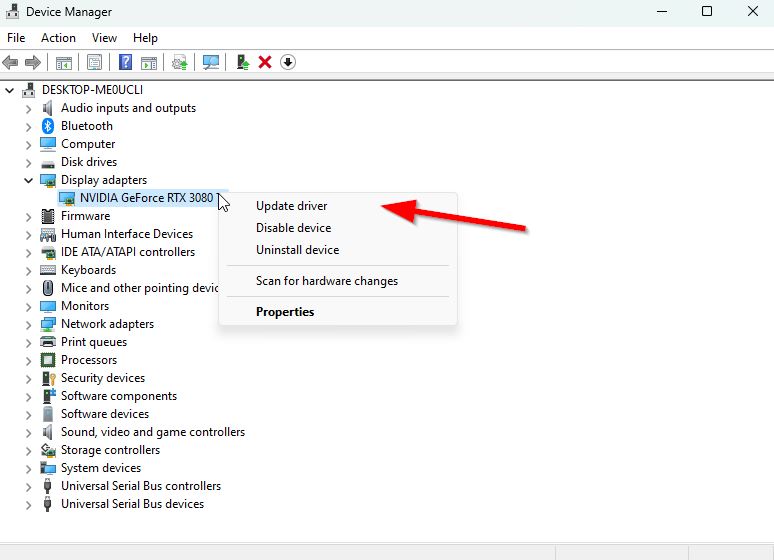
- Then right-click on the dedicated graphics card name you’re using to bring the context menu.
- Next, click on Update driver > Choose Search automatically for drivers.
- The system will automatically check for the available update.
- An update will automatically download and install the latest version if available.
- Once done, make sure to restart your PC to apply the changes.
If you can’t find any pending updates, head over to the official website of Nvidia below and search manually for the latest update. If a new version is available for the graphics card, download the driver and install it on your PC. You can jump to the link below to do so:
6. Switch to Dedicated GPU
Sometimes the game may run with the integrated HD graphics on the PC that comes with the processors to handle minimal graphics tasks. But if you’re using an external Nvidia graphics card, make sure to switch the Assassin’s Creed Valhalla game to the dedicated GPU by following the steps below.
- Right-click on the desktop screen to open the context menu.
- Now, click on Nvidia Control Panel to open it.
- Head over to 3D Settings > Select Manage 3D Settings.
- Open the Program Settings tab > Choose Assassin’s Creed Valhalla from the drop-down menu.
- Next, select the preferred graphics processor for this program from another drop-down menu.
- Finally, your Nvidia GPU should show as High-Performance Nvidia Processor.
- Save the changes and reboot the PC.
7. Check for Game Updates
According to Blizzard Support, corrupted or damaged game files can cause various problems and errors with game launching or gameplay. Mostly updating the game can resolve these issues in a jiffy.
For Steam:
- Open the Steam client > Go to Library.
- Click on Assassin’s Creed Valhalla from the list of installed games on the left pane.
- Now, the client will automatically search for the available update.
- You’ll see the Update option > click on it if an update is available.
- Wait for a couple of minutes or so until the game update completes. [Depends on the storage space and internet connectivity]
- Once done, make sure to close the Steam client.
- Finally, reboot your PC to apply changes and relaunch the Assassin’s Creed Valhalla game.
For Epic Games Launcher:
- Open the Epic Games Launcher > Head over to Library.
- Now, click on the three dots icon next to Assassin’s Creed Valhalla.
- Make sure the Auto Update option is turned on.
8. Verify and Repair Game Files
If there is an issue with the game files and they somehow get corrupted or missing, then make sure to perform this method to easily check for the issue.
For Steam:
- Launch the Steam client > Click on Library.
- Right-click on Assassin’s Creed Valhalla from the list of installed games.
- Now, click on Properties > Go to Local Files.
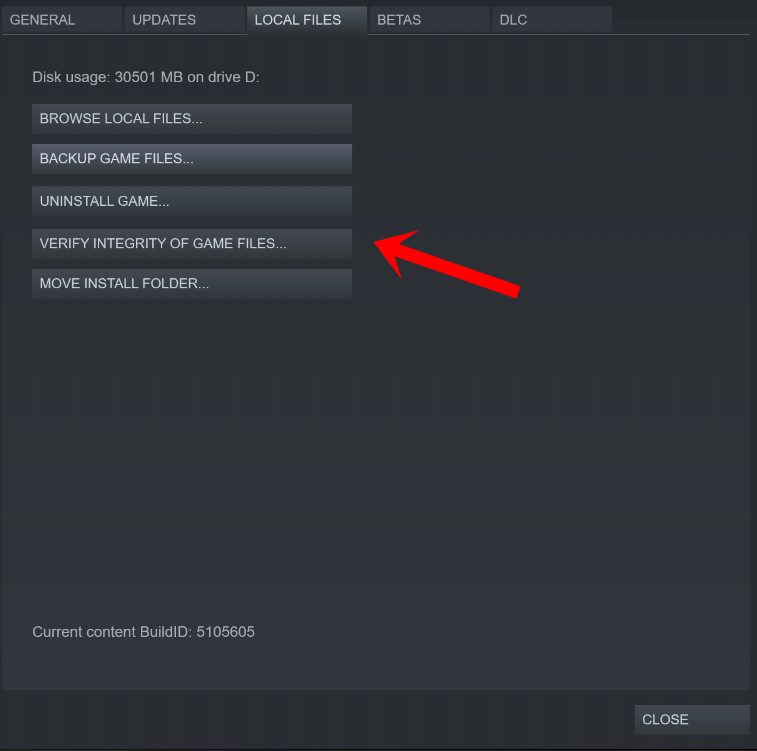
- Click on Verify Integrity of Game Files.
- You’ll have to wait for the process until it gets completed.
- Once done, restart your computer.
For Epic Games Launcher:
- Open the Epic Games Launcher > Click on Library.
- Click on the three-dots icon next to Assassin’s Creed Valhalla.
- Click on Verify > Wait for the process to complete and restart the launcher.
9. Close Background Running Tasks
Unnecessary background running tasks or programs can eat up a lot of system resources like CPU or Memory usage literally reducing system performance. Hence, the startup crashing, lagging, and not loading issues appear quite often. Simply, close all the unnecessary background running tasks completely. To do this:
- Press Ctrl + Shift + Esc keys to open up the Task Manager.
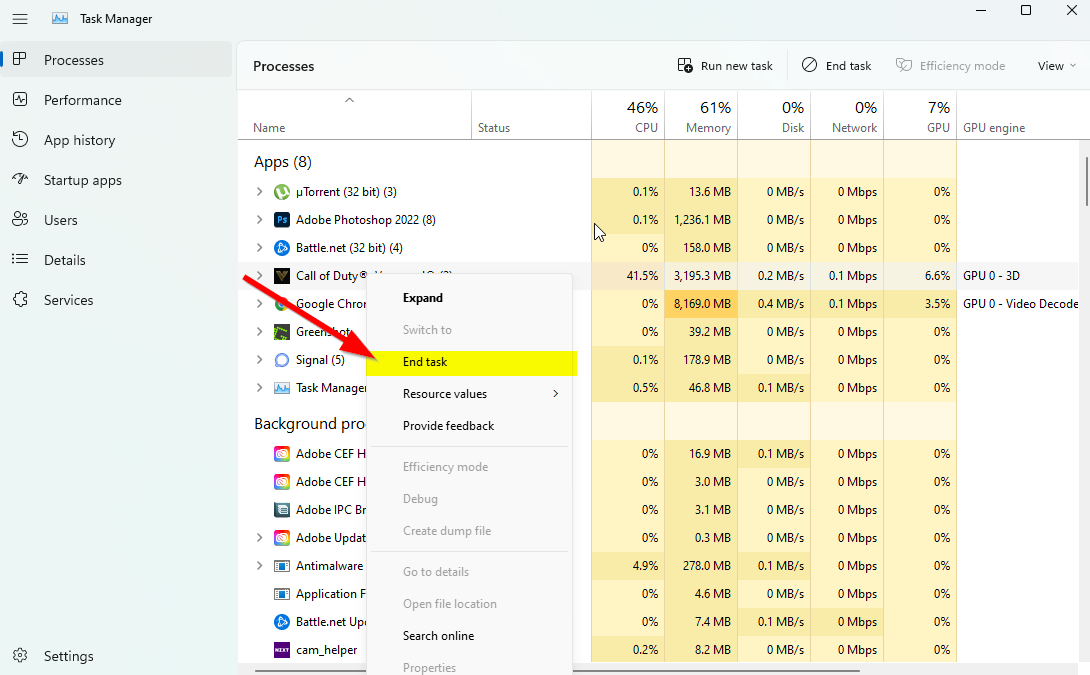
- Now, click on the Processes tab > to select tasks unnecessarily running in the background and consuming enough system resources.
- Click on End Task to close them one by one.
- Once done, restart your system.
Now, you can check whether you’ve fixed Assassin’s Creed Valhalla performance issues on your PC. If not, follow the next method.
10. Set High Priority in Task Manager
Make your game priority in the higher segment via the Task Manager to tell your Windows system to run the game properly. To do this:
- Right-click on the Start Menu > Select Task Manager.
- Click on the Processes tab > Right-click on the Assassin’s Creed Valhalla game task.
- Select Set Priority to High.
- Close Task Manager.
- Finally, run the Assassin’s Creed Valhalla game to check if it still has low FPS on the PC or not.
11. Disable Windows Firewall or Antivirus Program
The chances are that your default Windows Defender Firewall protection or any third-party antivirus program may prevent the ongoing connections or game files from running properly. So, temporarily disable or turn off the real-time protection and firewall protection. Then you should try running the game to check if the PC’s Assassin’s Creed Valhalla low FPS issues have been fixed. To do this:
- Click on the Start Menu > Type firewall.
- Select Windows Defender Firewall from the search result.
- Now, click Turn Windows Defender Firewall on or off from the left pane.
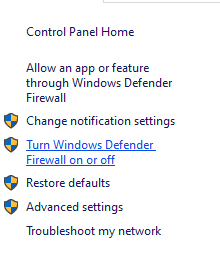
- A new page will open > Select the Turn off Windows Defender Firewall (not recommended) option for both the Private & Public Network Settings.
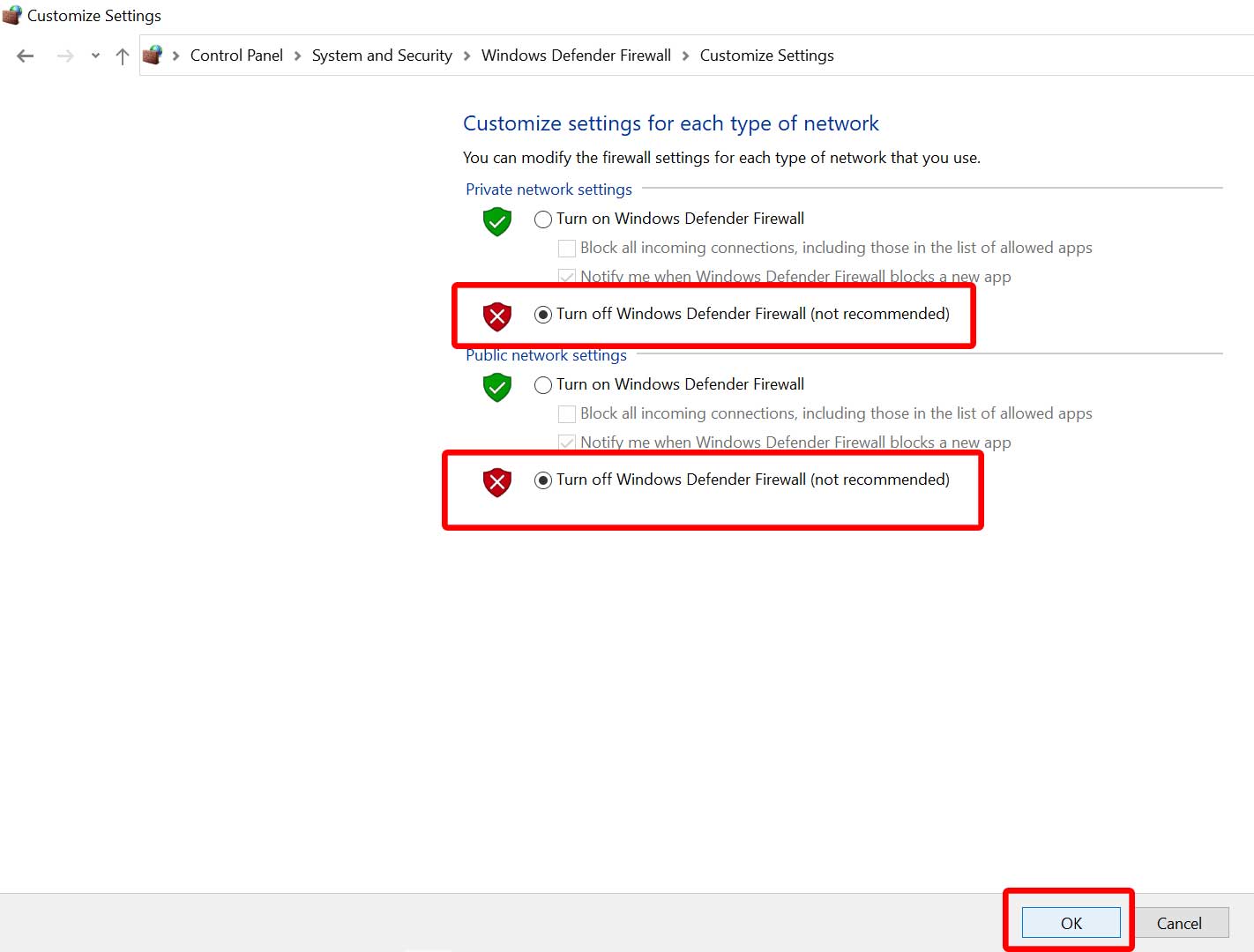
- Once selected, click on OK to save changes.
- Finally, restart your computer.
Similarly, you have to turn off the Windows Security protection too. Just follow the steps below:
- Press the Win+I keys to open the Windows Settings menu.
- Click on Update & Security > Click on Windows Security from the left pane.
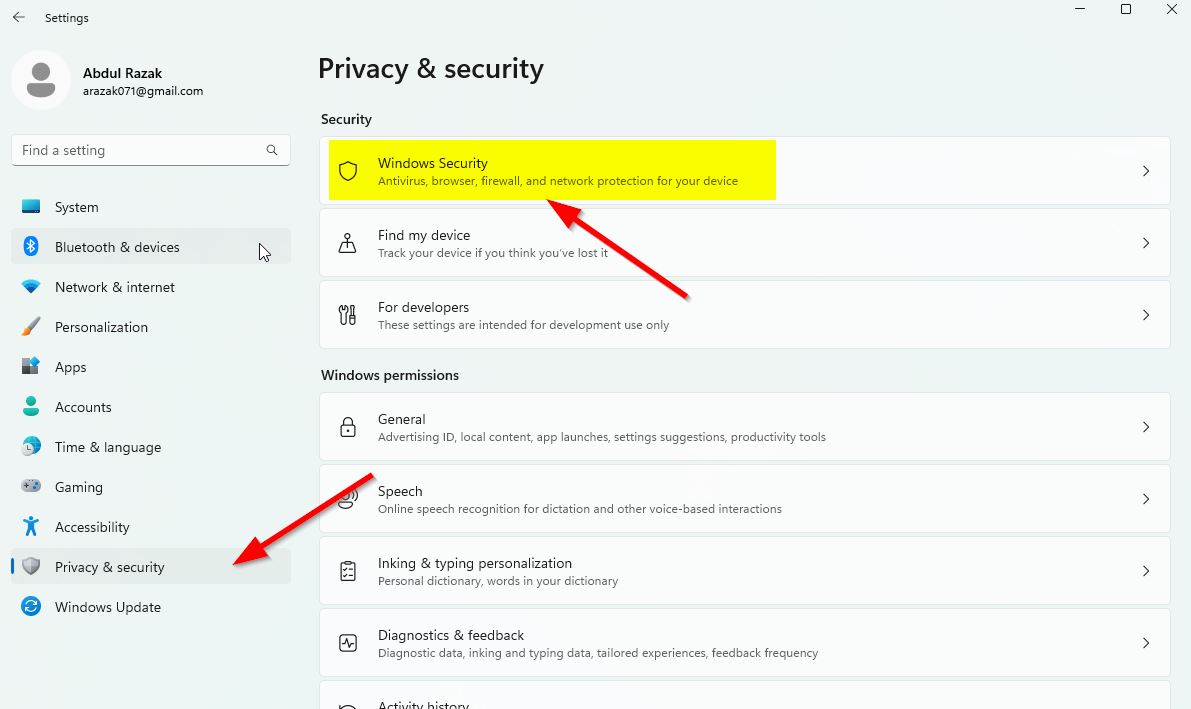
- Now, click on the Open Windows Security button.
- Go to Virus & threat protection > Click on Manage settings.
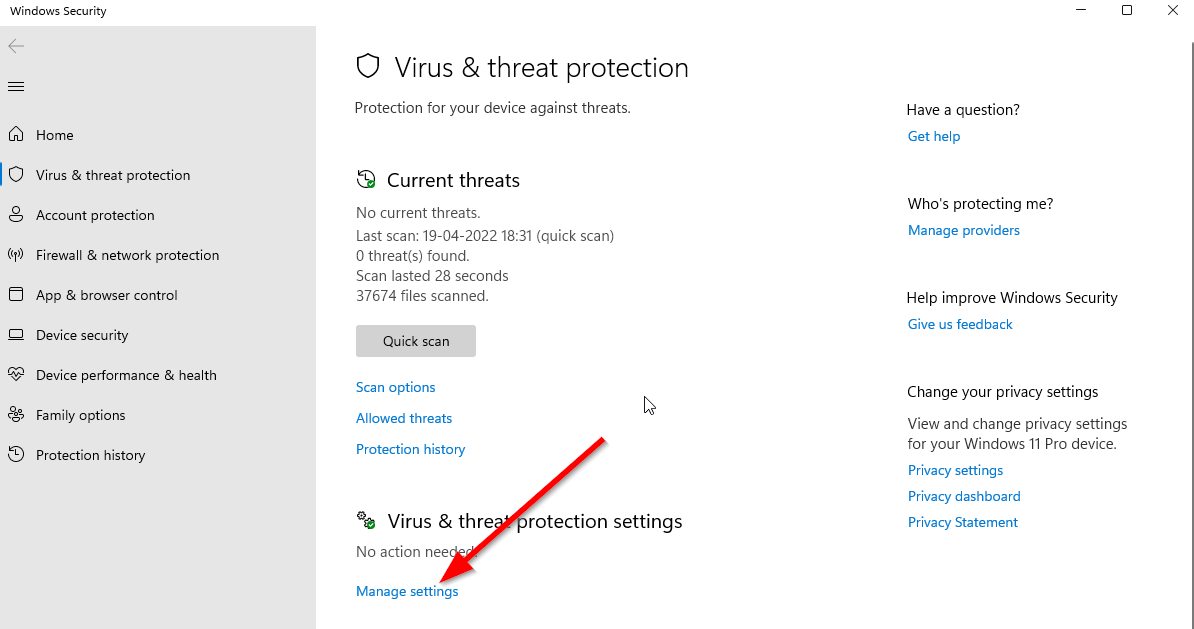
- Next, you’ll need to simply turn off the Real-time protection toggle.
- If prompted, click on Yes to proceed further.
- Additionally, you can also turn off cloud-delivered protection, Tamper protection if you want.
12. Set High Performance in Power Options
If, in case, your Windows system is running on the Balanced mode in Power Options, just set the High-Performance mode for better results. Although this option will take higher power usage or battery usage. To do this:
- Click on the Start Menu > Type Control Panel and click on it from the search result.
- Now, go to Hardware and Sound > Select Power Options.
- Click on High Performance to select it.
- Make sure to close the window and fully shut down your computer. To do this, click on the Start Menu > Go to Power > Shut Down.
- Once your computer is fully turned off, you can power it on again.
This should fix Assassin’s Creed Valhalla performance-related issues on your PC in most cases. However, if none of the methods worked for you, follow the next one.
13. Try Disabling Overlay Apps
It seems that a couple of popular apps do have their own overlay program that can eventually run in the background and cause issues with the gaming performance or even launching issues. You should turn them off to fix the issue by following the steps below:
Disable Discord Overlay:
- Launch the Discord app > Click on the gear icon at the bottom.
- Click on Overlay under App Settings > Turn on the Enable in-game overlay.
- Click on the Games tab > Select Assassin’s Creed Valhalla.
- Finally, turn off the Enable in-game overlay toggle.
- Make sure to reboot your PC to apply changes.
Disable Xbox Game Bar:
- Press the Win+I keys to open Windows Settings.
- Click on Gaming > Go to Game Bar > Turn off Record game clips, screenshots, and broadcast using Game bar option.
If in case, you’re unable to find out the Game Bar option then just search for it from the Windows Settings menu.
Disable Nvidia GeForce Experience Overlay:
- Launch the Nvidia GeForce Experience app > Head over to Settings.
- Click on the General tab > Disable the In-Game Overlay option.
- Finally, restart the PC to apply changes and launch the game again.
Also, do keep in mind that you should disable some other overlay apps like MSI Afterburner, Rivatuner, RGB software, or any other third-party overlay apps that run in the background always.
Bonus: If you don’t want to mess with the in-game graphics settings, you can open the Nvidia GeForce Experience app. Then click on Optimize to get the optimized Assassin’s Creed Valhalla Settings immediately without manually adjusting graphics options.
That’s it, guys. We assume this guide was helpful to you. For further queries, you can comment below.
